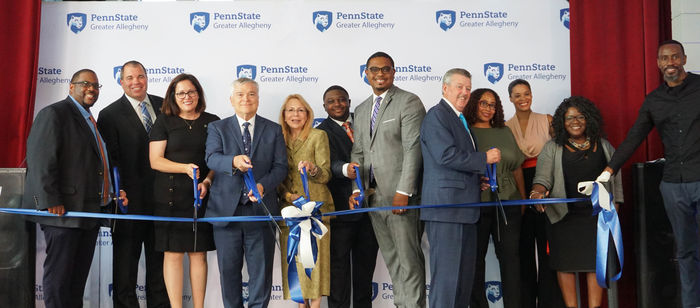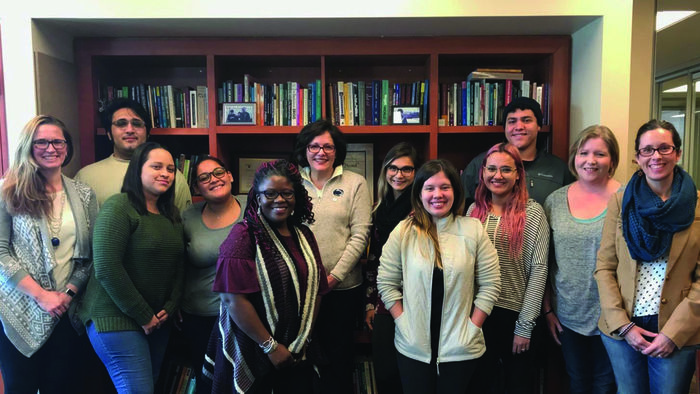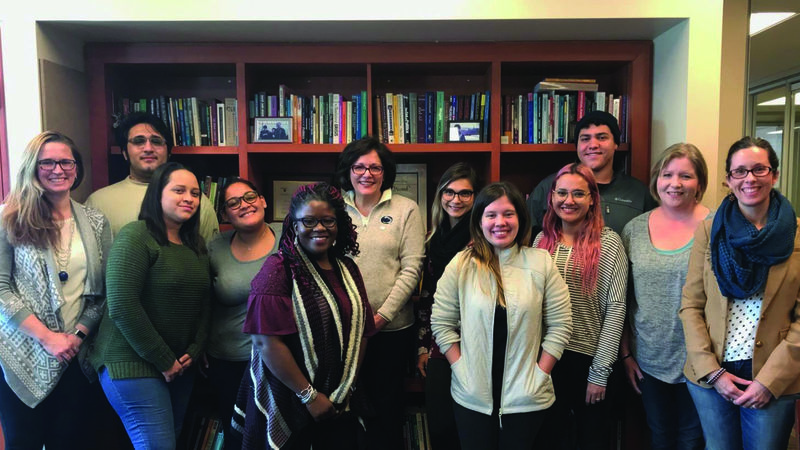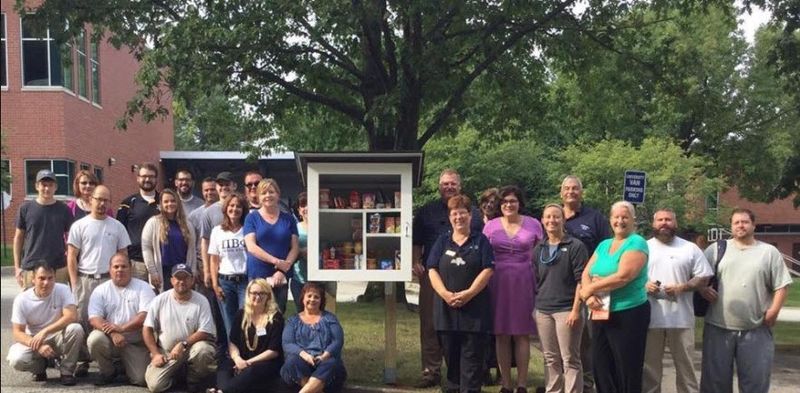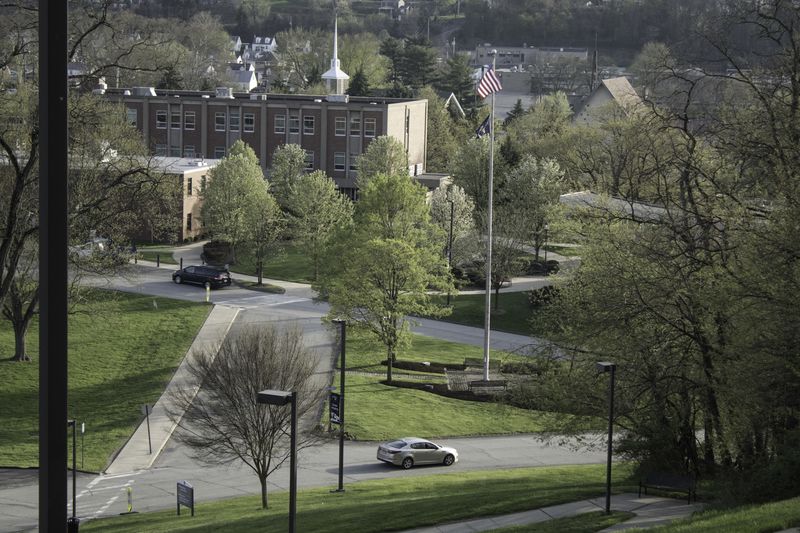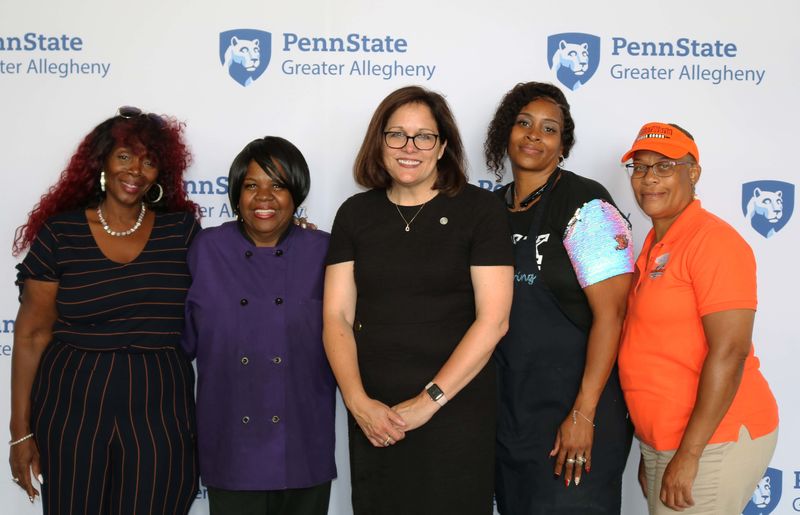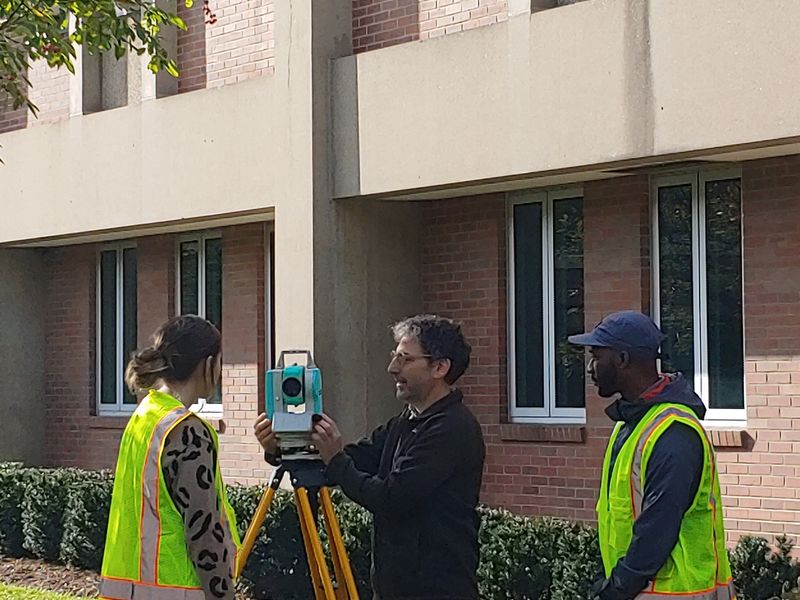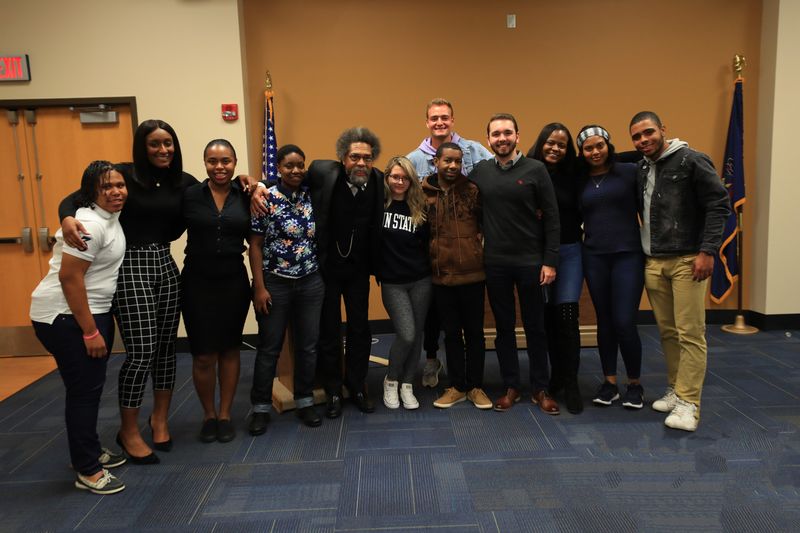
Since the 1930s, Penn State has been present in the McKeesport area. From its humble beginnings as a center to educate industry workers and veterans returning from World War II to today, Penn State Greater Allegheny continues to be an institution committed to transforming the lives of those it serves.
Greater Allegheny students come primarily from Pennsylvania, with 84% of those students residing in Allegheny, Westmoreland and other surrounding counties. Beyond the borders of the commonwealth, students hail from 14 states, the District of Columbia, Puerto Rico, China and Taiwan. All can learn and grow at a campus that values student success, global excellence, diversity, equity and engagement.
Since 2017, the campus has added several academic programs to serve its student body, including four associate degree programs and a 3+1 Energy Engineering program in partnership with the College of Earth and Mineral Sciences. Additional programs are in development with plans to launch in 2020.
In addition to student success, other values come to life through the campus’ signature programs. Launched in 2017 under the leadership of campus Chancellor Jacqueline Edmondson, these visionary programmatic initiatives also support the University’s Thematic Priorities. The signature programs include Digital Fluency, the Crossing Bridges Summit, Food Security and Sustainability.
“As a land-grant institution, it is our responsibility to serve the residents of the commonwealth and the students who arrive to our campus,” said Edmondson. “It is very rewarding to see our campus values in action through our signature programs. We have engaged faculty, staff, students, friends of the campus, industry and government leaders in work that makes it possible for individuals in our communities to grow and thrive.”
The Food Security initiative is one that has grown from a small food box in a campus parking lot, supported by community organizations such as Altrusa International of McKeesport, to a larger program funded in part by the Jefferson Regional Foundation. Through the expanded program, students now have access to a pop-up market, meal kits, fresh produce and meal plan support.
“College students across the nation carry the burden of being food insecure and students at Greater Allegheny are not exempt,” said Erica Willis, director of Trio Student Support Services. “With the vision our chancellor established, our campus community has prioritized helping students meet their basic needs, and the number of students who have used this resource has doubled over the past year.”
Edmondson's commitment to Greater Allegheny’s values extends beyond the 52-acre campus and into the city of McKeesport. With the opening of the Mon Valley LaunchBox, an Invent Penn State initiative, the campus and the city are determined to bring economic opportunity and growth to the region. Just in the past year, the LaunchBox has served more than 40 small business owners.
In only four years the Invent Penn State initiative has provided resources to 2,516 entrepreneurs, engaged 7,143 students in entrepreneurial thinking and startups, graduated 224 startup teams from accelerator programs, resourced 208 product development projects and created 146 new jobs. Across Pennsylvania, Penn State and the communities they serve have created 21 innovation hubs, 14 are LaunchBoxes, which focus primarily on helping to de-risk startup companies by providing them formal educational programming and coaching them to avoid costly common mistakes.
“Our partnership with the city (of McKeesport) is an important one,” said Eric Ewell, director of continuing education and co-facilitator of the Mon Valley LaunchBox. “As we engage in this work, we meet numerous community members and leaders, all of whom are committed to creating opportunities.”
Ewell pointed to one of the more inspiring endeavors, a visioning activity facilitated by the Forbes Funds. “In one room, we had campus and community leaders, government officials and foundation members defining what can be, all because our collective efforts are focused on positive change.”
Beyond the Forbes Funds and the Jefferson Regional Foundation, the campus also has established a strong working relationship with the Pittsburgh Metropolitan Area Hispanic Chamber of Commerce (PMAHCC), where Edmondson is a member of their board of directors.
In Spring 2018, PMAHCC helped Greater Allegheny welcome students from the University of Puerto Rico-Mayaguez (UPR-M) following Hurricane Maria. One of Edmondson’s former graduate students, Rosita Rivera, is a professor of English at UPR-M. Rivera told Edmondson that the UPR-M students’ education was disrupted as a result of hurricane recovery efforts. Edmondson invited them to continue their studies at Greater Allegheny, and seven students accepted the offer. “They brought such vibrancy to our campus,” said Edmondson. “Our work with UPR-M shows that collaborative efforts are impactful and transformative.”
Impact and transformation will be at the heart of campus conversations as Greater Allegheny begins the 2020-25 strategic planning process later this month. Through a series of town hall meetings, small working groups and a dedicated web page, all members of the campus community will be engaged in the process.
The campus is looking to align closely with One Penn State 2025, an effort that began in 2016 to reimagine student learning and support services across all of Penn State to boost student success, engagement, and efficient use of University resources.
In the coming months and years, Greater Allegheny (as well as all of Penn State) will be identifying collaborative opportunities that help the University become more integrated, flexible and responsive to meet the changing needs of students and communities.
“As we enter this phase of strategic planning, we recognize the energy and enthusiasm the campus, its volunteers, and the communities we serve have for the future,” said Victoria Garwood, director for strategic planning and chairperson of the committee. “We are fortunate that we concluded the prior cycle with so many unique and innovative initiatives, which align with University and campus values. We are excited to see what the next five years bring.”
In addition to Garwood, members of the Strategic Planning Steering Committee include Dave DeNardo, director of finance and business; Lorraine Craven, director of student services and engagement; Kris Scuilli, assistant teaching professor of math; James Jaap, teaching professor of English; Erica Willis, director of TRIO Student Support Services; and student representative Ebonie Slade.
